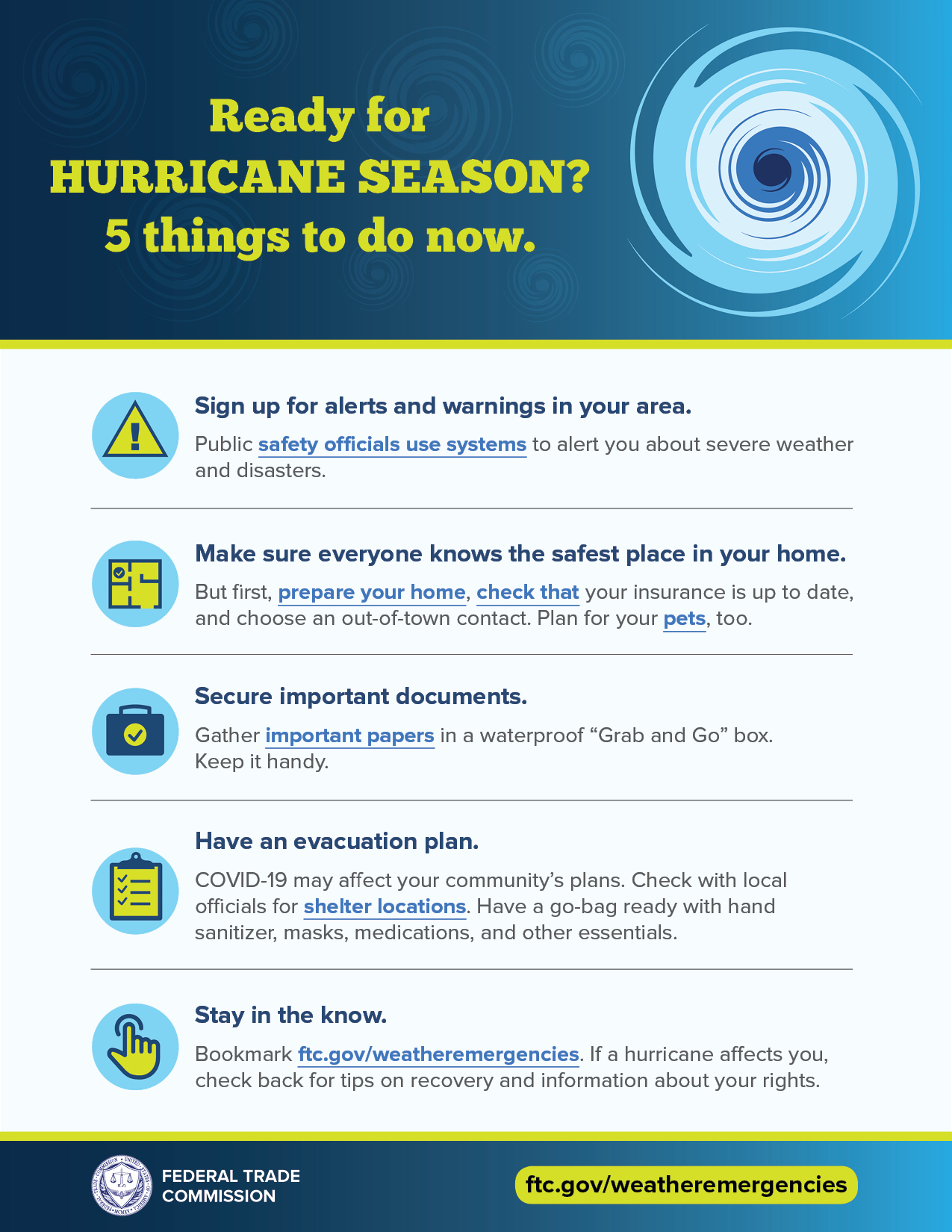June 1st is the start of hurricane season. For people in hurricane-prone areas, that means the risk of heavy rainfall, high winds, storm surges, flooding, tornados, and rip currents, which can all happen with little warning. Are you ready to leave your house at a moment’s notice? We’ve got tools to help you prepare.
The FTC’s site, Dealing with Weather Emergencies, has practical tips to help you get ready for, deal with, and recover from a weather emergency — including hurricanes and other natural disasters. Like all our materials, the site is mobile-friendly, so you’ll have ready access to information when and where you need it.
The page has four sections:
- Preparing for a Weather Emergency
- Staying Alert to Disaster-related Scams
- Getting Back on Your Feet Financially
- Resources
Even people not in a hurricane’s path can be affected, though. Are you one of many who generously contributes to disaster relief efforts after a hurricane? Before you give, make sure your charitable donations really count. Recovery efforts are a perfect opportunity for scammers to exploit people’s generosity, so stay on the lookout for charity scams.
Want to do your part in keeping your community well-informed and safe? Share this customizable one-page handout, Picking Up the Pieces after a Disaster, which compiles key tips from the FTC’s site in both English and Spanish. Just add your local consumer protection and emergency service contacts, print however many copies you need, and distribute them throughout your community.
And here’s one more thing. Despite the rise in COVID-19 vaccinations, remember these best practices for keeping you and your family “pandemic-safe” during an extreme weather event.
Spot a scam? Report it to the FTC at Reportfraud.ftc.gov to help us stop fraud in its tracks.
